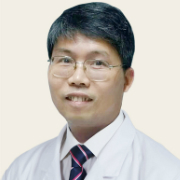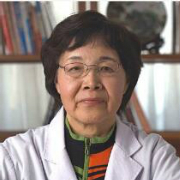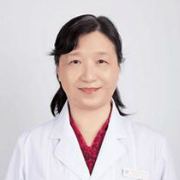-
- 李博主治医师 讲师
-
医院:
中国中医科学院西苑医院
科室:
消化科(脾胃病科)
- 腹胀便秘简易自我治疗
- 门诊中的孙子兵法??治疗便秘的...
- Muhimbili莫西比利医院...
- 搜狐转载北京晚报-医患共同守护...
- 守候你的大便
- 中医的异病同治??从中药的性别...
- 关于忌口??消化医生与美食家
- 中医是怎么回事--郝万山教授对...
- 甫寸《科学新生活》-认识反流性...
- 胃癌前病变并不可怕--如何面对...
- 反流性食管炎的中西医合作循证诊...
- 重新认识来医院的目的
- 医生的助手和秘书
- 胃酸过多之中西医合作降阶治疗
- 春季谈养肝
- 如何网上咨询诊疗(医患问答示范...
- 网络和电话诊疗疾病应慎重
- 平安夜及圣诞节的门诊(感恩我的...
- 医生无所谓就诊顺序(告诉患者加...
- 关注简单小病的诊疗才重要
- 做一个明白的病人(描述自己病情...
- 每一个患者都是一段故事
- 快速而且事半功倍的诊疗(端正看...
- 以身试病与坦然“面”对??面部...
- 守候你的月经
- 信任是海
- 做医生的乐趣
- 抗生素治病也致病(正确认识合理...
- 门诊中的孙子兵法??治疗便秘的...
- TCM in Muhimbil...
- HP幽门螺旋杆菌阳性怎样治疗?
- 夏季气候养生杂谈
- 夏季烫伤的自救
- 夏季常见突发病症及自救宝典
- 夏季溺水急救
- 夏季出汗与喝水的学问
- 健康“清”凉一夏――夏季养生杂...
- 吃在夏天??在夏季胃口大开-夏...
- 胃溃疡,胃下垂应该注意哪些问题
- 胃溃疡,胃下垂应该注意哪些问题
- 慢性萎缩性胃炎如何治疗
- 慢性胃炎,胆囊息肉该如何治疗?
- 长期便秘,已七八年之久,如何治...
- 来坦桑尼亚6个月门诊体会
- 自拟“三四五汤”治疗盆腔炎-坦...
- 从我的一个坦桑病例看中医的异病...
- TCM for Treatme...
- TCM for Obesity...
- YIN AND YANG-TH...
- RADITIONAL-CHIN...
- 治疗口腔溃疡的一些方法
- 胖大海外用治疗红眼病
- 经期腹泻可能会导致不育
- 妇科妙药-益母草
- 藿香正气并不通治所有类型的感冒
- 合理服用板蓝根
- 中药房淘宝??春天的陈皮乌梅
- 服用自制中药保健品要慎重
- 如何服药有讲究-正确服药
- 夏季口疮的预防治疗
- 夏季祛暑保健小方
- 对症进补,拒绝乱补,正确选补
- SPECIFIC AND PROFOUND TCM
- 作者:李博|发布时间:2008-10-21|浏览量:1333次
|
TCM, one of China"s splendid cultural heritages, is the science dealing with human physiology, pathology, diagnosis, treatment and prevention of diseases. TCM summed up the experience of the Chinese people in their long struggle against diseases and, under the influence of ancient naive materialism and dialectics, evolved into a unique, integral system of medical theory through long clinical practice. During several thousand years it has made great contributions to the promotion of health, the proliferation and prosperity of the Chinese nation, and the enrichment and development of world medicine as well. The formation of the theoretical system of TCM was greatly influenced by ancient Chinese materialism and dialectics. The theoretical system takes the physiology and pathology of zang-fu organs and meridians as its basis, and TDS as its diagnostic and therapeutic features.中国中医科学院西苑医院消化科(脾胃病科)李博 |
|
TCM has its own specific understanding both in the physiological functions and pathological changes of the human body and in the diagnosis and treatment of disease. TCM regards the human body itself as an organic whole interconnected by zang-fu organs, meridians and collaterals.And TCM also holds that the human body is closely related to the outside world. In regard to the onset and development of a disease, TCM attaches great importance to the endogenous pathogenic factors, namely the seven emotion, but it by no means excludes the exogenous pathogenic factors, namely the six pathogens. In diagnosis, TCM takes the four diagnostic methods ( inspection, auscultation ant olfaction,inquiry, pulse-taking and palpation as its principal tcchniques, eight principal syndromes as its general guideline, and differentiation of syndrome according to the zang-fu theory, differentiation of syndromes according to the six-meridian theory, and differentiation of syndromes according to the theory of wei, qi, ying and xue as its basic theories of the differentiation of syndromes. It also stresses the prevention and preventive treatment of disease, and puts forward such therapeutic principles as "treatment aiding at the root cause of disease". "strengthening vital qi and dispelling pathogens, regulating yin and yang and treating diseases in accordance with three conditions" (i. e. the climatic and seasonal conditiont, geographic localities and the patient"s constitution). |
|
These characteristicts, however, can be generalized as the holistic concept and treatment by differentiation of syndromes (TDS) |
|
l. The Holistic Concept |
|
By "the holistic concept" is meant a general idea of, on the one hand, the unity) and integrity within the human body and, on the other, its close relationship with the outer world. The human body is composed of various organs and tissues, each having its own distinct function, which is a component part of the life activities of the whole body. And in TCM the human body is regarded as an organic whole in which its constituent parts are inseparable in structure, interrelated and interdependent in physiology, and mutually influential in pathology. Meanwhile, man lives in nature, and nature provides the conditions indispensible to man"s survival. So it follows that the human body is bound to be affected directly or indirectly by the changes of nature, to which the human body, in turn, makes corresponding responses. TCM says: "Physicians have to know the law of nature and geographical conditions when diagnosing and treating diseases." That"s why TCM not only stresses the unity of the human body itself but also attaches great importance to the interrelationship between the body and nature in diagnosing and treating diseases. |
|
2. Treatment by Differentiation of Syndromes |
|
TCM, on the other hand, is characterized by TDS. Differentiation means comprehensive analysis, while syndrome refere to symptoms and signs. So differentiation of syndromes implies that the patient"s symptoms and signs collected by the four diagnostic methods are analyzed and summarized so as to identify the etiology, nature and location of a disease, and the relation between vital qi and pathogens, thereby determining what syndrome the disease belongs to. By treatment is meant selecting the corresponding therapy according to the outcome of differentiating syndromes. Taken as a whole, TDS means diagnosis and treatment based on overall analysis of symptoms and signs. |
|
As concerns the relationship between "disease" and "treatment", TCM takes two different clinical ways on the basis of TDS. One is "treating the same disease with different therapies", by which is meant that the same disease may manifest itself in different syndromes at different stages or under different conditions. Therefore, the therapies of the same diease should be adopted towards different therapies according to the patient"s constitution, the geographical environment, the climatic and seasonal changes. Take flu for example, it may be caused by wind-cold,wind-heat, summer-heat and dampness or other pathogens. So is advisable to adopt dispersing wind-cold, eliminating wind-heat, clearing away summer-heat and dampness respectively. The other is called "treating different diseases with the same therapy", by which is meant that different diseases manifesting themselves in the same syndrome may be treated with the same therapy. For example prolapse of the rectum due to protracted diarrhea and hysteroptosis are two different diseases. However, if they are both marked by themselves in the same syndrome of qi of sinking of the middle energizer, they can be treated in the same therapy by lifting qi of the middie energizer. From the above it becomes obvious that TCM does not focus its attention on similarities or dissimilarities between diseases but on the differences between the syndromes. Generally speaking, the same syndromes are treated with basically same therapies, while different syndromes with different ones. |
|
To sum up, the principle that different contradictions in essence are handled by different methods in the course of development of a disease is the core of TDS. |
TA的其他文章:




